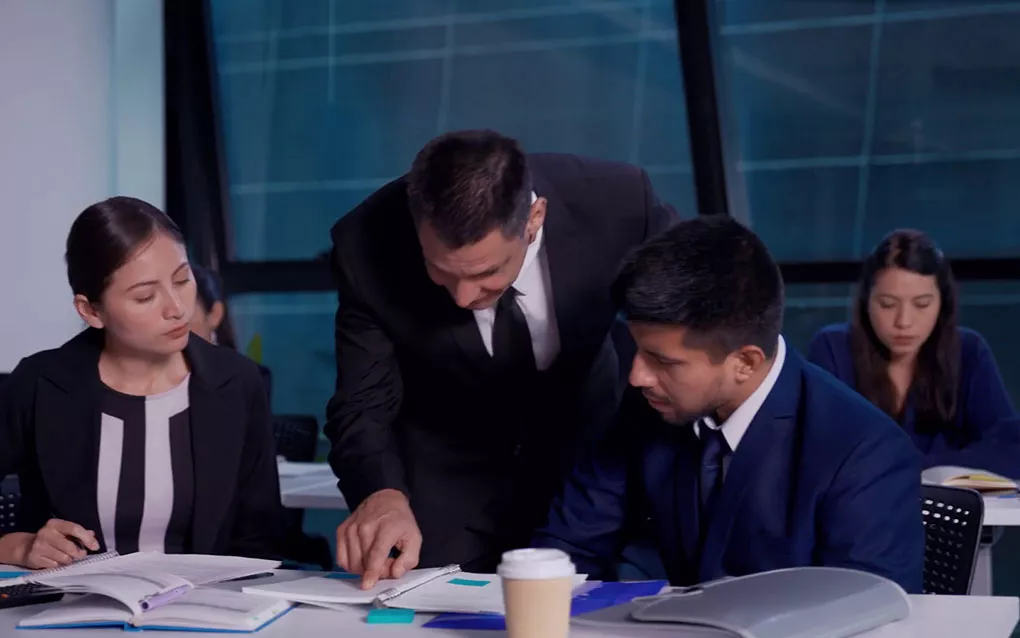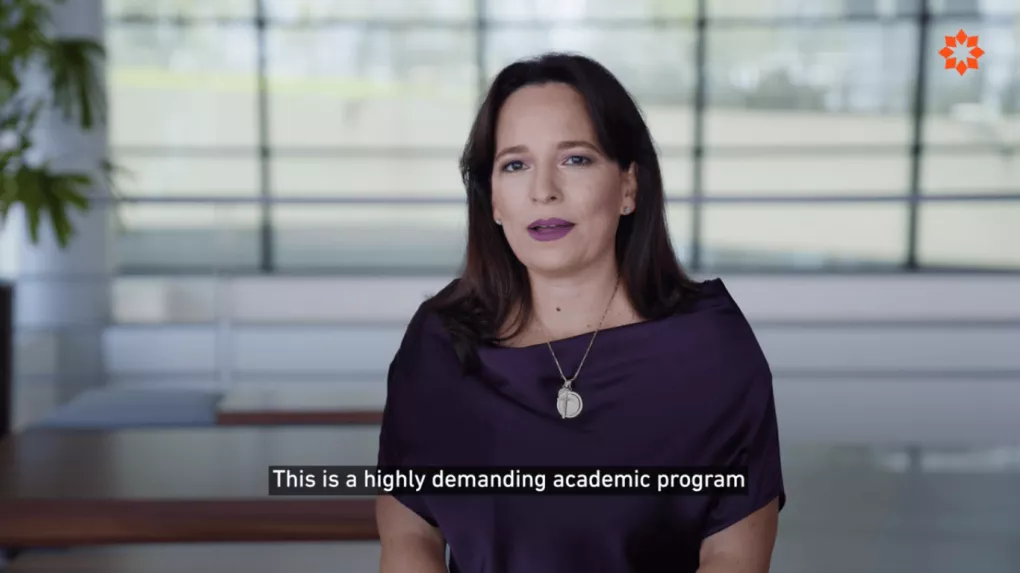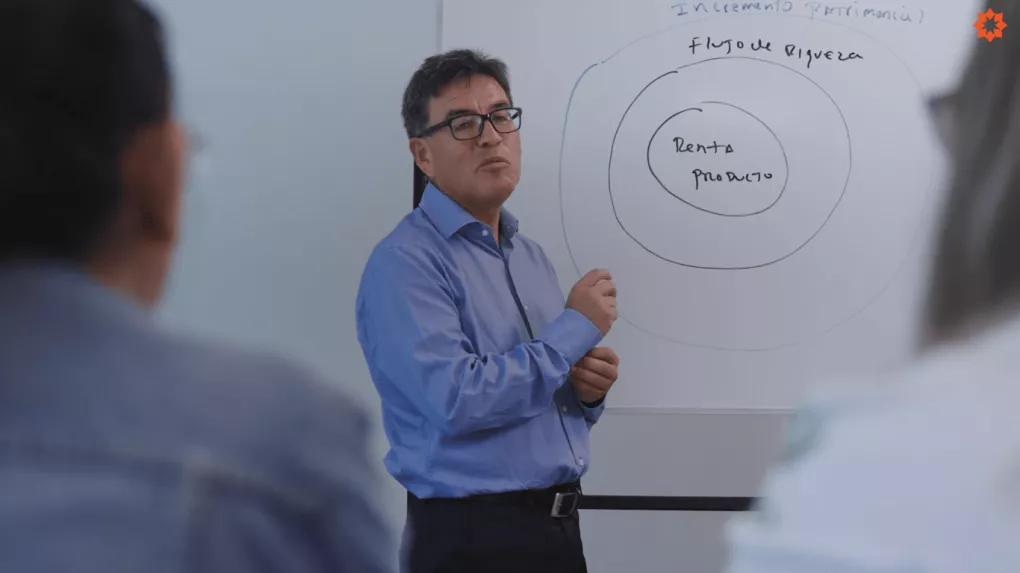MASTER’S PROGRAM IN TAXATION AND FISCAL POLICY
The Master's in Taxation and Fiscal Policy offers a multidisciplinary specialization that integrates taxation and fiscal policy across the fields of accounting, law, economics, and strategic management. It equips students with competencies grounded in a taxation-focused perspective that responds to the globalization of economies and businesses, particularly in connection with Peru's professional landscape. The curriculum is designed to encourage the exchange of interdisciplinary knowledge, with in-depth exploration of both regulatory-legal and economic-accounting dimensions.
BENEFITS
Students benefit from academic resources, exclusive partner discounts, and financing opportunities.
FINANCIAL BENEFITS
- Interest-free financing available directly through the Graduate School.
- Exclusive discounts for the Ulima Community—contact your advisor for details.
ACADEMIC BENEFITS
- Study trip to Universidad de Navarra (Madrid, Spain)
- International agreement to obtain the second Master's Degree in Tax Consultancy at Universidad de Navarra
- Second degree option: Official Master's in Public Finance and Financial and Tax Administration from UNED (Spain) and the Institute for Fiscal Studies of the Spanish Ministry of Finance
- Access to the International Bureau of Fiscal Documentation (IBFD) database
- Subscription to the Editorial Economía y Finanzas Manual
- Subscription to the GALILEO digital platform
- Subscription to IBFD webinars
- International seminars and extracurricular workshops
- Five courses in international taxation
- Four courses in fiscal policy
- Academic excellence and prestige
- National and international networking opportunities
- Possibility of credit validation for students who completed the Specialized Program in Taxation*
* Subject to evaluation.
ULIMA BENEFITS
- Employability Center (Ulima Laboral)
- Access to the Wellness Center (gym, nutrition, psychopedagogical counseling)
- Access to Mayorazgo Sports Complex (swimming, football, basketball, volleyball)
- Access to Ulima Medical Department
- Valid discounts via Ulima App
PROCESS
PROFILE EVALUATION
Your file is evaluated. Once approved, you can pay the enrollment fees.
PSYCHOLOGICAL EVALUATION
You can do this evaluation in parallel with the essay. This is sent to your email.
ESSAY WRITING
You will access a platform to write an essay. This must include your reasons to apply to the master's program.
INTERVIEW WITH THE DIRECTOR
A personal interview with the director of master's or doctoral program takes place once the previous steps have been completed.
PAYMENT COMMITMENT LETTER
You must submit a payment commitment letter duly signed and pay the first installment.
CURRICULUM
The Master's in Taxation and Fiscal Policy adopts a multidisciplinary approach that integrates the financial, accounting, legal, and economic dimensions of taxation. The curriculum is regularly updated to reflect the global context of economies and businesses. In addition, the program strengthens managerial competencies essential for effective professional practice.
IFRS IMPACTS ON TAXATION I
IFRS IMPACTS ON TAXATION II
CONSUMPTION TAX
ECONOMIC TAX ANALYSIS
INCOME TAX I
CONSTITUTIONAL AND GENERAL PRINCIPLES OF TAXATION
INCOME TAX II: BUSINESS INCOME
INCOME TAX III: NON-DOM INCOME AND SPECIAL REGIMES
TAX PROCEDURES
FOREIGN TRADE AND CUSTOMS TAX
FISCAL POLICY AND MACROECONOMICS I
FISCAL POLICY AND MACROECONOMICS II
INTERNATIONAL TAXATION I / TRANSFER PRICING
MUNICIPAL AND REGIONAL TAXATION
INTERNATIONAL TAXATION II / TRANSFER PRICING
INTERNATIONAL TAXATION III / AGREEMENTS
TAX OFFENCES, PENALTIES AND CRIMES
SECTOR TAXATION AND INVESTMENT PROMOTION
SEMINAR ON FINAL MASTER’S PROJECT I
FINANCIAL TAXATION
INTERNATIONAL TAXATION IV / AGREEMENTS
PUBLIC ADMINISTRATION FOR FISCAL POLICY
STRATEGIC TAX PLANNING
LEADERSHIP AND TEAMWORK
TAXATION OF DIGITAL ECONOMY
SEMINAR ON FINAL MASTER’S PROJECT II
APPLICANT PROFILE
The Master's in Taxation and Fiscal Policy is designed for professionals working in the tax sector—whether in public or private institutions—who wish to advance their expertise and broaden their impact in the field.
Applicants must meet the following minimum requirements:
- A bachelor's degree or professional title.
- An intermediate level of a foreign language.
- At least two (2) years of professional experience in taxation.
As part of the admission process, applicants are required to sign a language commitment letter, agreeing to submit proof of intermediate proficiency in a foreign language. This certificate must be issued by a renowned language center in Peru or any official institution recognized by Universidad de Lima.
Regarding academic preparation, applicants must demonstrate prior training in taxation through certificates from diploma programs, specialization courses, and/or relevant professional experience. In addition, applicants must have basic proficiency in information technologies, including platforms such as Zoom and Blackboard, as well as intermediate-level skills in Excel, Word, and AI tools.
APPLICANT PROFILE
- Non-certified copy of the valid National Identity Card (DNI) or Alien Registration Card (ARC).
- Non-certified copy of the bachelor's degree registered in the National Superintendency of University Education (SUNEDU). Not applicable to Ulima graduates.
- Resume duly signed with passport-size photo (JPG format, 240x288 pixels, 300 DPI minimum resolution, in front of a plain white background, no eyeglasses).
- An academic or employment recommendation letter, or a work certificate from your current or most recent job.
- A minimum of three (03) years of work experience (preferred).
- Registration fee payment.
- Foreign language commitment letter, in accordance with the current university regulations.
- One (01) Statement of Purpose, to be completed on the platform indicated by the Graduate School.
- Once documents are submitted, the Admissions Office will send you an email within 48 hours to make the registration payment (350 PEN).
GRADUATE PROFILE
Graduates of this master's program will be able to:
- Propose regulatory reforms and solutions to complex tax issues through solid argumentation, critical analysis, and the interpretation of local and international tax regulations, using a multidisciplinary approach.
- Design fiscal policy proposals grounded in the analysis of national and international economic contexts, applying macroeconomic theory tools.
- Identify tax avoidance risks and evaluate complex financial market operations—both domestic and international—in order to determine efficient business structures that comply with current legal frameworks.
- Conduct original research and develop specialization papers aligned with the Graduate School's academic standards, contributing to the body of knowledge in tax law and fiscal policy.
- Assemble and lead high-performing teams to achieve organizational strategic goals through collaborative and instructive leadership that fosters positive relationships and innovation.
- Evaluate complex tax scenarios using a multidisciplinary perspective to propose innovative, fair, and legally sound solutions that promote equitable tax contributions.
To obtain the graduate status, students must:
- Complete the study program.
- Fulfill all university obligations.
- Process graduate status with the Student Services and Registry Bureau (DUSAR).
To obtain the academic degree, students must:
- Hold graduate status.
- Demonstrate proficiency in a foreign or native language by submitting a valid certificate from an institution recognized by the Ulima Language Center.
- Hold an approved thesis or research project in the relevant field.
- Comply with all requirements set forth in the rules and regulations.
Note 1: Students have a maximum of six (6) years to obtain the academic degree.
Note 2: The current rules and regulations are available on the Ulima website (click here).
INTERNATIONAL EXPERIENCE
Aligned with our global vision, students in this master’s program are eligible to participate in International Week and explore dual-degree options at prestigious universities. These academic experiences offer valuable international networking and professional opportunities.
- Study trip especially designed for our students.*
- Reinforced international vision acquired during the master's program.
- Focused on the latest trends in international taxation, using a case-based methodology.
- Location: new campus in Madrid.
*Only academic fees are covered.

Through an international agreement with Universidad de Navarra in Spain, our master’s students can fast-track a Master’s Degree in Tax Consulting by validating key international taxation courses completed in Peru. This second degree—renowned for its academic rigor and global recognition—offers specialized training in European tax law, allowing students to access a world-class program, broaden their international network, and strengthen their expertise for today’s competitive global market.

Through an agreement between Universidad de Lima and the Instituto de Estudios Fiscales (IEF), graduates of the Master’s in Taxation and Fiscal Policy can access the Official Master’s in Public Finance, Financial and Tax Administration—offered by Universidad Nacional de Educación a Distancia (UNED), the IEF, and leading global institutions. This program enhances fiscal expertise, deepens knowledge of financial and tax administration systems, and fosters connections with professionals worldwide.

PROFESSORS
CASTILLO RUIZ,
Bettina
Consultant of Grupo BBVA in Peru
GAMBA VALEGA,
César
Manager of Tax Matters at Grupo Repsol
COMITRE MIRANDA,
Daniela
Partner at PWC
PAREDES BERMÚDEZ,
Darío
Partner at Ernst & Young
TUESTA CÁRDENAS,
David
Former Minister of Economy and Finance
TORI VARGAS,
Denise
Partner at Tori Abogados law firm
PINTADO ESPINOZA,
Enrique
Independent Consultant
BRAVO,
Jesús
Head of Transfer Pricing, Indirect Taxes and Digitization at Coca-Cola European Partners
GARRET VARGAS,
Juan Alberto
Tax Advisor at Telefónica del Perú
VIDAL CHANG,
Juan Carlos
Executive Director at EY Perú
ZÚÑIGA DULANTO,
Licette
Board member of the Tax Court
ARIAS MINAYA,
Luis Alberto
Former President at Banco de la Nación
HUAMÁN,
Marco
Board Member Chairman of the Customs Courtroom at the Tax Court
BYRNE,
Mónica
International Taxation Advisor at Miguel Mur & Asociados firm
NINUMA AIDA,
Nathalie
Partner at Ernst & Young
HUMPHREYS NEUMANN,
Patrick (Chile)
Partner at Garnham Abogados law firm
LEIVA GÁLVEZ,
Ricardo
Partner at Ernst & Young Perú
VARGAS REYNOSO,
Ronald
Partner at Deloitte Perú, Business Tax Department
LEÓN PINEDO,
Silvia
Partner at SLP Consultoría Tributaria
MUÑOZ SALGADO,
Silvia
Partner at Gálvez & Dolorier Abogados law firm
MEJÍA NINACONDOR,
Víctor
Board Member at the Tax Court
VILLANUEVA GUTIÉRREZ,
Walker
Partner at Philippi Prietocarrizosa Ferrero DU & Uría
CHEVARRÍA ARRIETA,
Zully
Partner at Chevarría & Consultores Asociados firm
ADVISORY COUNCIL
DE LA TORRE DELGADO, David
Partner at Ernst & Young Perú, responsible for tax matters since 2010. He has extensive experience in taxation related to foreign investment, international operations, concessions, and fiscal planning. A member of the Peruvian Institute of Tax Law (IPDT) and the Peruvian branch of the International Fiscal Association (IFA), he has participated in due diligence and planning for transaction procurement and structuring. He has also taught the Sector Taxation course in the Master's Program in Taxation at Universidad de Lima. He holds a Master's in Comparative and International Law from Southern Methodist University (USA), an MBA from Universidad Adolfo Ibáñez (Chile), and a Law degree from Pontificia Universidad Católica del Perú.
BUITRAGO DÍAZ, Esperanza
PhD in Tax and Administrative Law from Universidad de Salamanca (Spain). Holds a Master's in Intellectual Property Law from Universidad de Los Andes and a Bachelor's Degree in Law from Universidad de La Sabana (Colombia), along with academic training at the Max Planck Institute for Tax Law and Public Finance (Germany). Buitrago has served as Deputy Director of the Tax Law Department at Universidad del Rosario (Colombia) and as a visiting professor at universities in Argentina, Colombia, Spain, and China. She currently works at the Center for Taxation at Maastricht University (Netherlands), where she teaches International Taxation and Global Tax Policy. She is the author of numerous publications on international taxation and serves on the editorial boards of various specialized journals.
VEGA BORREGO, Félix
Professor of Financial and Taxation Law at Universidad Autónoma de Madrid (UAM), where he currently serves as Director of the Public Law and Legal Philosophy Department of the School of Law. He is an advisor, consultant, and expert for various national and international public and private organizations. Borrego has been a visiting researcher at Georgetown University Law Center (United States) and Universidad Nacional de San Martín (Argentina). His research focuses primarily on international taxation and tax procedures. He previously held the position of Vice Dean of the School of Law at UAM. He holds a PhD and a professional law degree from UAM.
LÓPEZ AMERI, Gustavo
Tax & Legal Partner at Deloitte, with over 25 years of experience in business consulting, primarily in the consumer goods and technology, media, and telecommunications sectors. He is an expert in taxation and due diligence, identifying tax and legal risks that may impact business operations. He has also led mergers and designed tax policies and structures for multinational companies. He teaches the Income Tax course in the Master’s Program in Taxation at Universidad de Lima. He holds a Master’s Degree in Taxation and Fiscal Policy from Universidad de Lima and a Law degree from Pontificia Universidad Católica del Perú.
TAXATION BLOG
Stay up to date with the latest in tax legislation. This blog breaks down fiscal reforms and their effects on today's business arena.




